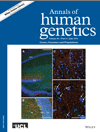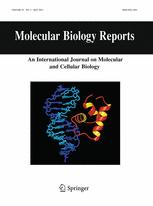 A cluster of papers by different authors has been retracted for sharing text, even though some papers were submitted at the same time.
A cluster of papers by different authors has been retracted for sharing text, even though some papers were submitted at the same time.
How is that possible? A spokesperson for Springer told us that they have reason to believe a third-party company may have helped prepare the papers for publication, and in the process might have spread the material around to multiple manuscripts.
The details of the cluster are a bit perplexing, so bear with us. Two of the papers — that were published only months apart — have already been retracted, as we reported in April. Now, two other papers have been retracted from Molecular Biology Reports — and both notices cite the previously retracted papers. The new notices also say that there’s reason to believe that the peer-review process was compromised.
All papers conclude that a certain polymorphism could signal a risk for coronary artery disease among Chinese people.
We’ll start with the retraction notice for “Fibroblast growth factor receptor 4 polymorphisms and coronary artery disease: a case control study,” which cites the two papers that were retracted previously:
Continue reading A retraction cluster? Two papers retracted for overlap with other retractions


